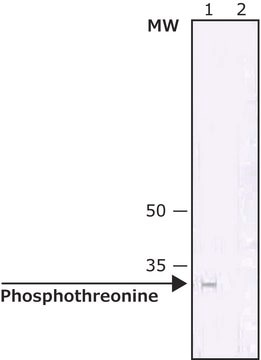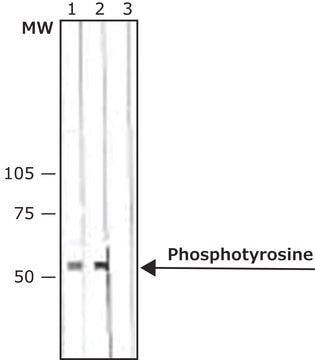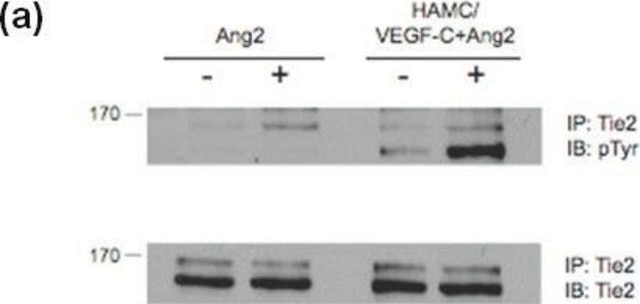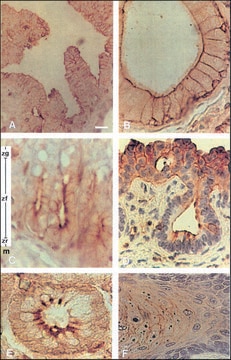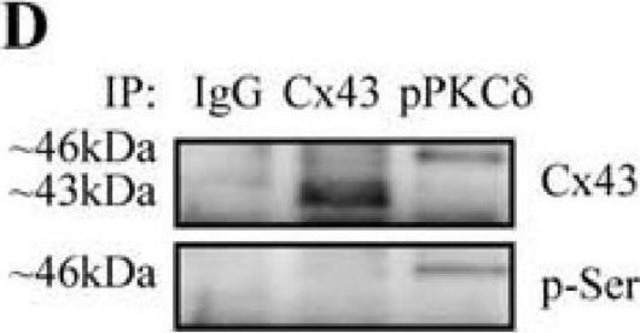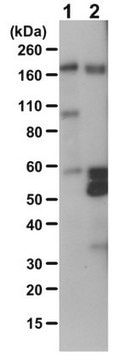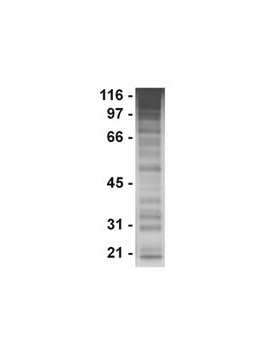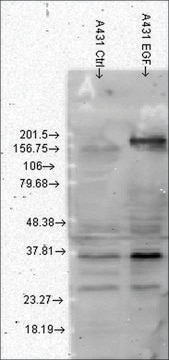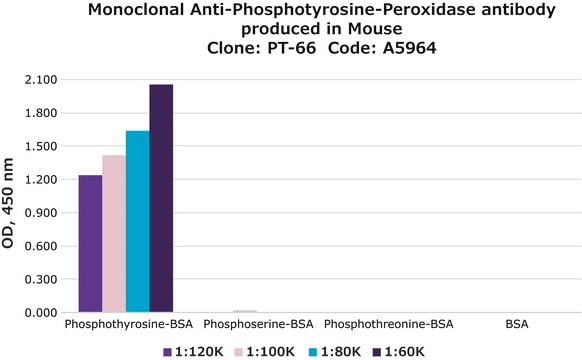P1869
Anti-Phosphotyrosine antibody, Mouse monoclonal
clone pT-154, purified from hybridoma cell culture
Synonym(s):
Phospho-Tyr, Phospho-tyrosine, p-Tyr
About This Item
Recommended Products
conjugate
unconjugated
Quality Level
antibody form
purified immunoglobulin
antibody product type
primary antibodies
clone
pT-154, monoclonal
concentration
~2 mg/mL
technique(s)
direct ELISA: suitable
immunohistochemistry: suitable
microarray: suitable
western blot: 2-4 μg/mL using total extract of A431 cells stimulated by EGF
isotype
IgG2b
shipped in
dry ice
storage temp.
−20°C
target post-translational modification
unmodified
General description
Immunogen
Application
- enzyme linked immunosorbent assay (ELISA)
- western blot
- immunohistochemistry
Biochem/physiol Actions
Physical form
Disclaimer
Still not finding the right product?
Give our Product Selector Tool a try.
Storage Class
10 - Combustible liquids
flash_point_f
Not applicable
flash_point_c
Not applicable
Certificates of Analysis (COA)
Search for Certificates of Analysis (COA) by entering the products Lot/Batch Number. Lot and Batch Numbers can be found on a product’s label following the words ‘Lot’ or ‘Batch’.
Already Own This Product?
Find documentation for the products that you have recently purchased in the Document Library.
Our team of scientists has experience in all areas of research including Life Science, Material Science, Chemical Synthesis, Chromatography, Analytical and many others.
Contact Technical Service